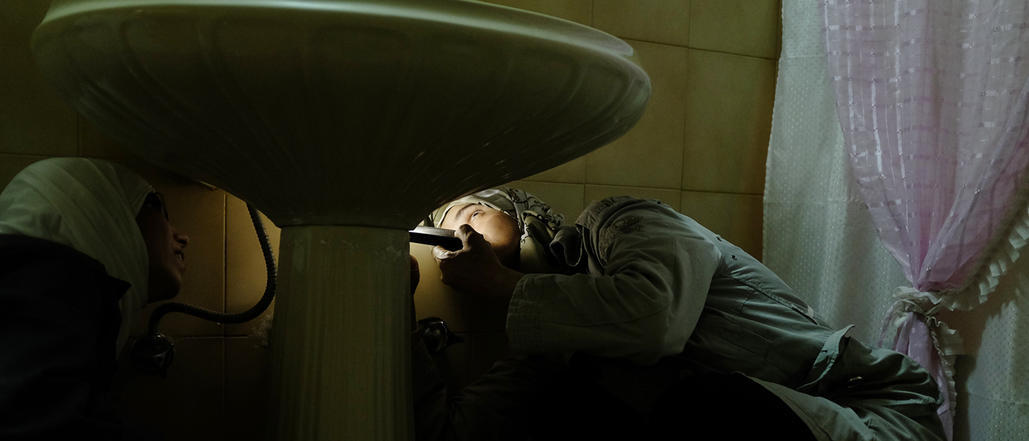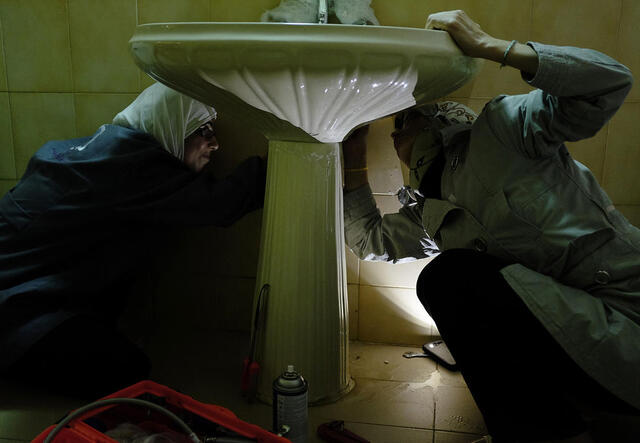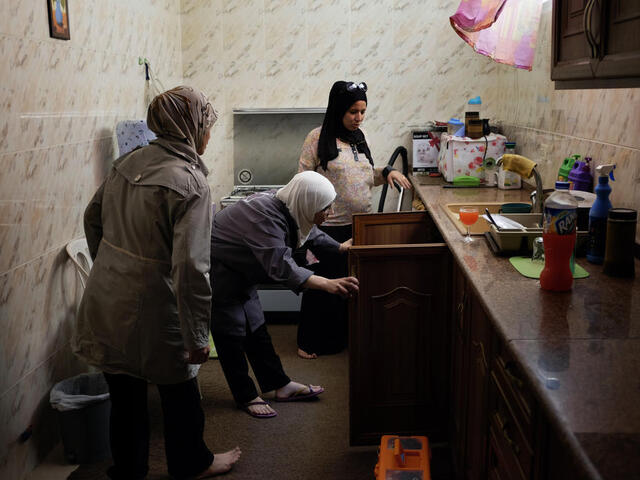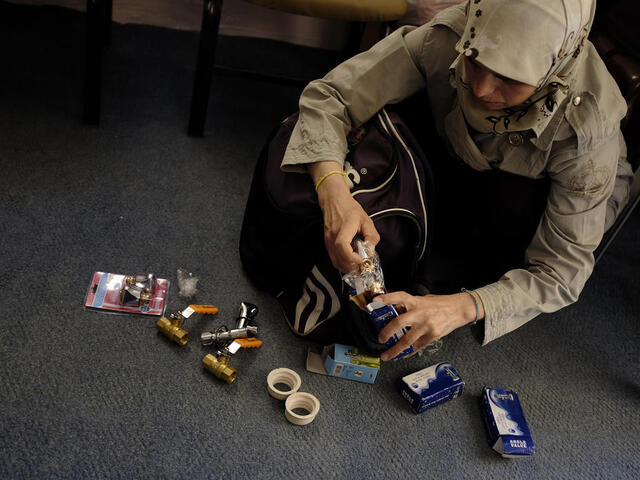
Forced by war to abandon their businesses and former lives, Syrian women are creating new opportunities for themselves and their families in the countries where they’ve found refuge. Meet five resilient and ambitious entrepreneurs in Jordan in our new multimedia series, Starting up again: Syrian entrepreneurs in exile.
Name: Safa’a*
Age: 42
From: Dara’a, Syria
Living in: Irbid, Jordan
Arrived in: 2012
Startup: Plumbing business with her friend Hala,* a Syrian refugee whose four brothers were killed in the war
Goals: Help rebuild her family’s future after fleeing Syria, where her husband, a Jordanian citizen, was arrested and then released by Syrian authorities, her son was seriously wounded during the fighting, and the wedding accessory shop she owned was destroyed.

Safa'a shares her story:
A lot of women from Syria came to Jordan without their husbands. They can’t allow a male plumber into their house when they are home alone. They have to wait for a male relative to be with her in the house.
I heard about a plumbing course for refugees offered by a German organisation. I went with my friends; it was kind of a joke at first. I didn’t know a thing about plumbing. But we became really interested.
Men were surprised to see us taking this course – 25 women graduated. This course gave us basic knowledge so we could fix things in the house without having to depend on men.
I used to also take recreational classes at the International Rescue Committee women’s centre. That’s where I met Hala. I became very good at sewing and decided to open a lingerie business with her. We started taking a small business training course with the IRC – but with each piece of advice I was receiving, I kept going back to the plumbing idea.
The instructors used to tell us that we should choose something unique, something that would capture people’s attention. So I chose to go forward with the plumbing business. I felt like this was a special project, and it doesn’t exist in Jordan. I felt like this is a business that has a promising future and will help us progress.

“No career is shameful”
Many of the women who were taking the IRC course with us have university degrees with majors like business administration, accounting, interior design, English literature and nursing. I have a degree in fine arts.
We created the plumbing business with five partners: three Syrians and two Jordanians. The German organisation that taught the plumbing course gave us 200 JOD ($282) for transportation and a toolbox to help us get started.
The only partners who are working right now are Hala and me. One partner’s son forbids her to work with us -- he doesn’t want her to work in this profession.
There’s no career that is shameful. A man can do a woman’s job and vice versa. Men and women complete each other, they’re not competitors.
My family is very supportive. My husband motivates me, always working backstage. He’s the one who designed our logo and promotional materials. We learned about marketing and promotion from the IRC course. My husband and I worked on the promotional items together: aprons, notebooks and bags with our logo. He also helped us renovate the office.
Sometimes when we go to a woman’s house, and we see that the repair job is simple, we don’t charge. We try to educate the women we visit as well on how to fix simple things. We also help women over the phone when they call us at night. It builds trust between our customers and us.
We’re still not profiting much from this business, especially since we have to divide the profits. We also have many expenses like rent and equipment. The landlord usually asks for 100 JOD ($141) to rent the office, but he is helping us by only asking for 60 JOD ($84) per month.
We don’t just do plumbing now; we fix water filters, air conditioners and dishwashers. I’m hoping to start selling tools and spare parts as well—like a construction tool shop. We have so many ideas and hope to expand the business.

When we first started going out to work as plumbers, we heard a lot of negative comments from people because it’s not a female profession. It doesn’t bother us anymore.
There’s no career that is shameful. A man can do a woman’s job and vice versa. Men and women complete each other, they’re not competitors.
*Names changed for privacy reasons
Learn more
Refugee crisis in the Middle East and Europe